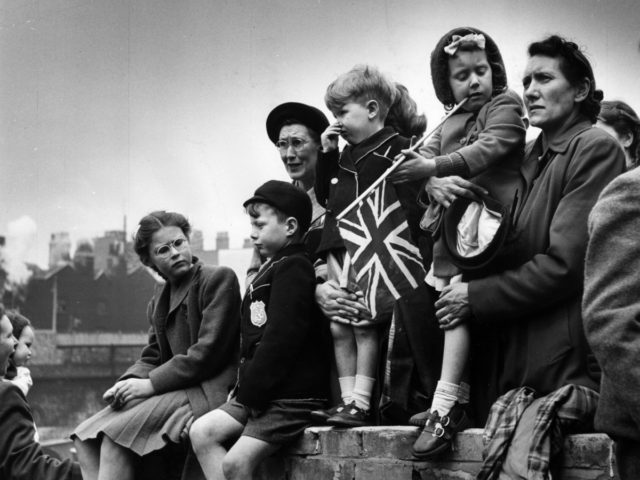The UK’s Office for National Statistics (ONS) has revealed the marriage rate for British heterosexual couples has reached the lowest level recorded.
In contrast to countries that have recently adopted pro-family policies, such as Hungary and Poland, the United Kingdom is continuing to see a dramatic fall in the marriage rate, with 2017 — the most recent available year — showing record lows.
Indeed, while the rate has dropped by 45 per cent since 1972 and halved since 1940, the average age for marriage reached a record high in 2017: 35.7 years old for women and 38 for men. Put another way, the total number of marriages in 2017 was at a level last seen in 1895 — the population of the United Kingdom having more than doubled in the intervening 125 years.
According to the statistics for England and Wales released by the ONS, marriage rates for unmarried men slumped to 21.2 per 1,000 unmarried men and 19.5 per thousand for unmarried women, the lowest in recorded history. In total there were 242,842 marriages in England and Wales in 2017, a decrease of 2.8 per cent from the year before.
Religious marriage ceremonies also dropped to their lowest level in history, with just 23 per cent of marriages being held in a church or other places of worship.
The British government has placed an emphasis on women entering the workforce through taxation schemes that, by accident or design, disincentivise traditional families. The government levies tax on individual earnings rather than on family units, creating a system in which families reliant on a single income of £60,000 will take home less money than two salaries of £30,000– as the single income is placed into a higher taxation bracket, and is denied the marriage allowance, which is only available to lower earners.
The cost of living compared to incomes also means that buying a home, never mind raising children in a stable and safe environment becomes difficult on a single average income of around £30,000.
The result of the anti-family policies has been one contributing factor encouraging millions of more women entering the workforce since the 1970s, with women representing the majority of new entrants into the economy — a change which has had a significant knock-on effect on marriage rates, and fertility.
The British approach comes in contrast to the Hungarian model, which has seen marriage rates increase by nearly 100 per cent over the previous year and an increase of 9.4 per cent in the birth rate.
Marriage Up, Abortion and Divorce Down as Hungary Chooses Family Support Over Mass Migration https://t.co/v3wPMRthNc
— Breitbart London (@BreitbartLondon) November 2, 2018
Last year the conservative Prime Minister of Hungary, Viktor Orbán — who is leading his nation’s continued recovery from decades of communist occupation — introduced a raft of pro-family policies, including policies particularly geared towards women. The legislation exempted women who have raised four or more children from paying income tax for life, as well as introducing a loan scheme for women under the age of 40 that marry for the first time, that would be entirely forgiven if the family has three children.
“In 2010, when [Orbán’s Fidesz party] won the elections with a two-thirds majority after eight years of socialist, anti-work, anti-economy, and anti-family governance, our country was at the brink of collapse,” Hungary’s State Secretary for Family, Youth, and International Affairs, Katalin Novák said last week in exclusive comments to Breitbart London.
“The recent demographic figures speak for themselves, the number of marriages is at its 40-year high, the fertility rate at its 20-year high, while the divorces haven’t been as low as last year in the last six decades,” she added.
Last year, Poland also introduced a scheme to support motherhood directly, bringing in a “maternal pension” to show “gratitude and respect” to women who have contributed to society by having four or more children.
Priti Patel’s ‘Economically Inactive’ Comments Betray UK Govt’s Hostility to Traditional Family https://t.co/NsSuUcYD3Q
— Breitbart London (@BreitbartLondon) February 20, 2020
Follow Kurt on Twitter at @KurtZindulka

COMMENTS
Please let us know if you're having issues with commenting.